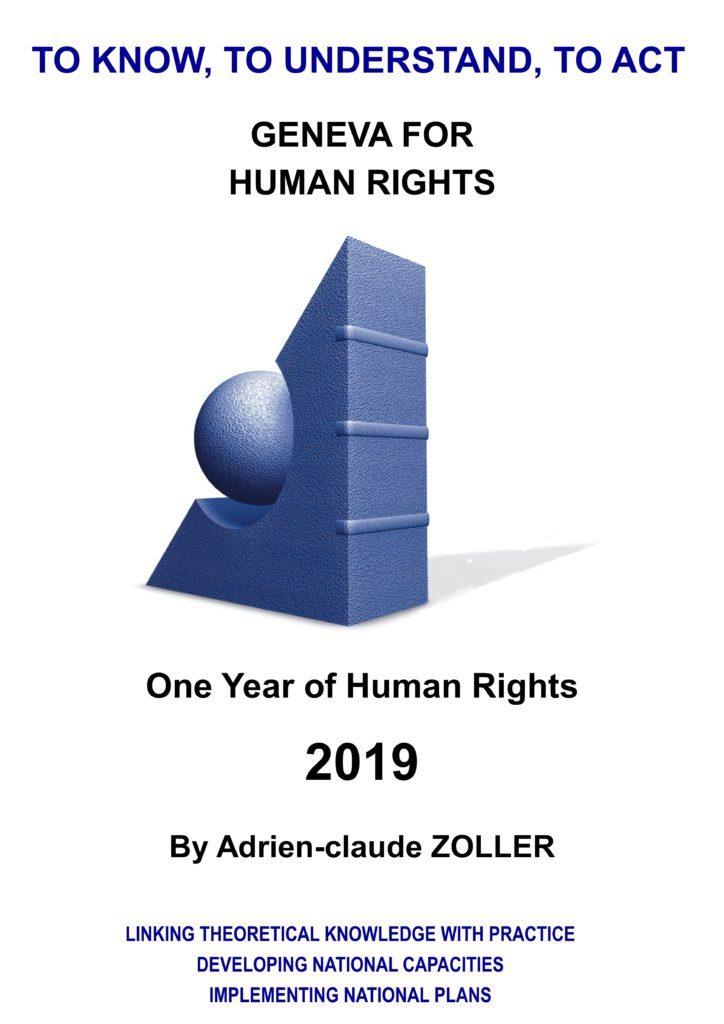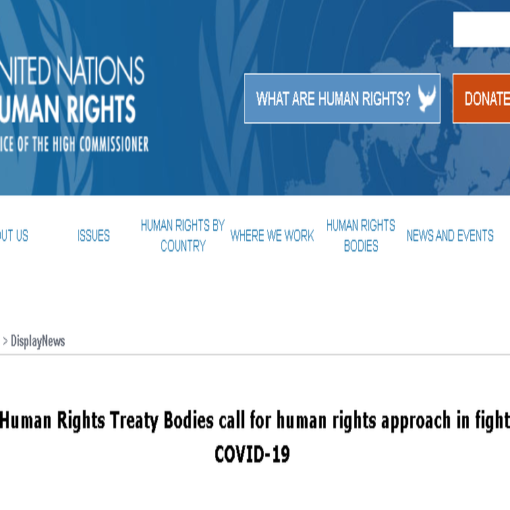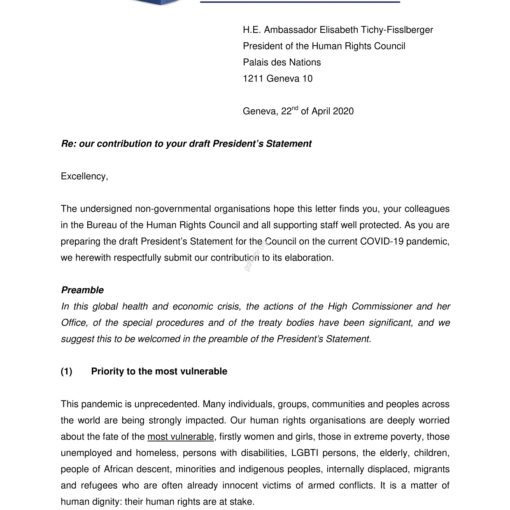
Human Rights Year 2019 – Foreword Annual Report 2020
Over the last 75 years, the United Nations adopted many human rights instruments, principles, declarations, conventions, and created dozens of monitoring mechanisms and procedures. But on the spot, victims, witnesses, human rights defenders and organisations continue to face massive abuses. There are gaps between UN decisions and their follow-up in the field. It is time for implementation. This has to be done by the country itself, which implies a need to develop national protection systems and national capacities.
The progress in human rights in the UN is not linear. We monitored periods of progress and years of regression, often concluded with confirmations during major events, such as the 1993 World Conference. These ‘ups’ and ‘downs’ are not surprising. Major political developments often lead to drastic changes in the human rights policy of States. With the globalization new needs and priorities emerge. Moreover, Governments generally don’t like to be called to order by an increasingly effective human rights system.
We are in a ‘down’ phase. The UN human rights system is under increasing pressure from a growing number of States. In the 90s, the Sub-Commission was gradually reduced to silence. Then, hardliner States focused on the Special Rapporteurs. A code of conduct was adopted in 2007, for the mandate holders, and not for the States committing crimes. To further avoid the debate, many States then targeted NGOs and defenders, misusing the anti-terror legislation to accuse human rights NGOs, defenders, and sometimes even victims and witnesses of ‘terrorism’. Legislations prohibiting foreign funding were introduced in many countries, in all the regions. And, in the Human Rights Council and its mechanisms, hardliner States multiply the obstacles to the NGOs, who provide the human rights mechanisms and procedures with authentic, verified, and therefore credible information. Reprisals against them have become an urgent issue.
States also target the treaty monitoring bodies. In its 2014 Resolution 68/268, the UN General Assembly decided to start a process of reform of the Committees ‘to enhance their effectiveness. However, whilst the Committees did a lot to improve their working methods, the financial weapon is being used to try to cancel their next sessions.
UN human rights standards are also challenged, as exemplified by attempts to re-define the concept of torture; to challenge women’s rights; to further limit the freedom of opinion and expression and the freedom of religion or belief; and to oppose the protection of certain human beings because of their sexual orientation. The Chinese resolutions on development (to realize human rights); and on dialogue instead of confrontation (‘Win-win’ principle), the resolution on human rights of the family (Egypt, Saudi Arabia) constitute an attempt to re-define the human rights standards. Sovereignty, non-interference and cultural pluralism and/or diversity’ are used to avoid examining massive human rights abuses,
It is time to wake up and to re-establish the centrality of human rights in the UN.
January 2020
Adrien-Claude Zoller, President




